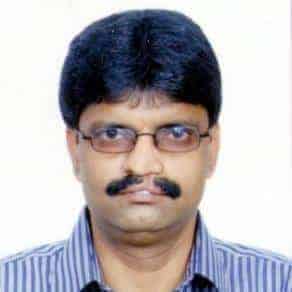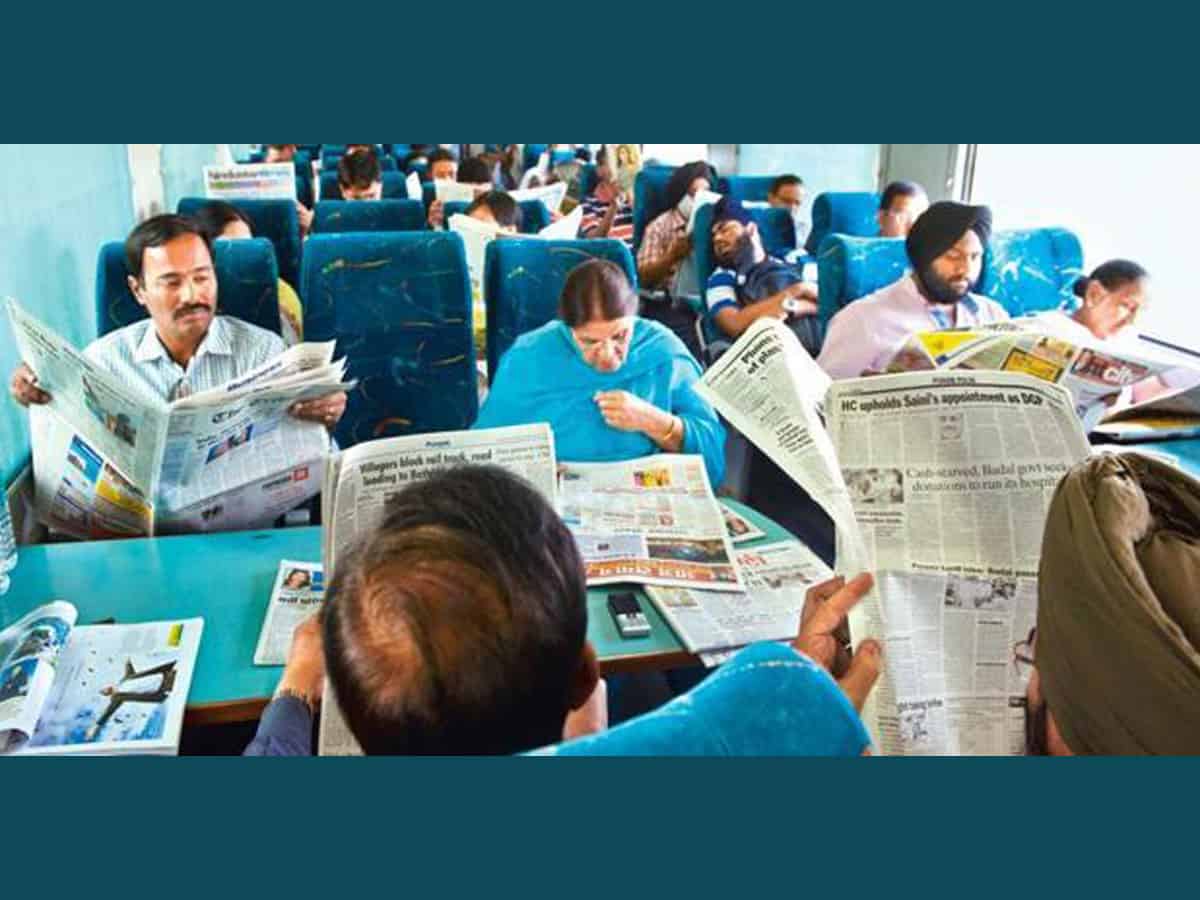
KheeNchoN na kamanoN ko na talvaar nikaloJab thop muqabil ho to akhbar nikalo
(Neither bow and arrow nor a sword do you require
Publish a newspaper when faced with cannon fire)
–As translated by Rekhta
I woke up this morning late because last night, after watching Prime Minister Narendra Modi announced nation-wide complete lockdown for 14 days in the wake of rampaging coronavirus, I had my quiet dinner though tumult gripped heart and mind.
Since sleep was far away, I opened a book on partition and the chapter on where Mahatma Gandhi was when India celebrated its independence on August 15, 1947 got me engrossed so much that I didn’t realize it was quite late to hit the bed. Mahatma Gandhi was dousing fires of communalism, closing the chasm and promoting communal harmony in the streets of Calcutta when the rest of the country was readying to plunge into pomp and pageantry, dance with delirium to welcome the new dawn.
Disappointment awaited me as I opened the door and couldn’t find the bundle of newspapers in the gate grills. I called up the newspaper vendor but he didn’t pick up the phone. Then I checked with a colleague who said that newspapers were not printed because the vendors had refused to collect and distribute them.
The vendors complained that housing societies were refusing to let the newspaper delivery boys in as they feared, wrongly of course, that newspapers carried coronavirus. Nothing could be farther from the truth.
Newspapers are printed at state-of-the art printing presses and, as it has been spelt out emphatically, sanitized hands handle them till they reach consumers. Rumours can really make life miserable and rumours about newspapers or those who vend or deliver them to our homes carrying the deadly coronavirus have compounded a crisis which has already disrupted our lives.

Most of us who grew up reading daily newspapers religiously just cannot do without them. Deny me the morning tea, I will not complain. Stop giving me newspapers in the morning, I will go crazy. Life loses its luster without newspapers. I will explain why and how? I have heard many say their blood pressure shoots up as they see negative headlines in the newspapers.
For me newspapers are stress busters. They subside blues and cure bad temper and mood. Once I am lost in reading newspapers, I don’t know what is happening around me at least till that time I am reading them. They provide me such refuge nothing else cannot.
Newspaper reading and writing letters to the editors of newspapers are what brought me to Journalism. I had bunked Biology classes and Physics practicals at Aligarh Muslim University (AMU) to pore over the pages of half a dozen newspapers at AMU’s massive Maulana Azad Library. Though my father blamed mainly my “bad” habit of reading newspapers for not getting good grades at the exams resulting in my “evacuation” from AMU, the habit never died. The love never waned. Even after I was planted afresh in Patna.
I shared a room with two of my siblings at a private lodge on the bank of the mighty Ganges in Patna. Every morning, with the impatience of a besotted lover, I would await the arrival of my “beloved” the newspaper. To say that I read it would be understatement. I would devour it. Since I couldn’t afford to subscribe more than one newspaper, I would go to a library to “quench” the thirst.
At one corner of the Congress party’s regional headquarters, the sprawling Sadaqat Ashram in Patna, stood a whitewashed old building. It housed a library named after patriot and freedom fighter Maulana Mazharul Haque. Thousands of books, many dog-eared but most not touched in decades, occupied its many wooden shelves.
Most of us youngsters who visited this relic of the past were interested in the newspapers that the library bought. After I became a regular visitor and familiarized myself with its soft-spoken, paan-chewing, middle-aged librarian in spotless white khadi kurta-dhoti, one day I approached him with a request.
“Sir, you subscribe to more than half a dozen newspapers in English and Hindi. It will be interesting if you subscribe to an Urdu newspaper too,” I said. Spitting out slimy paan juice, the librarian said: “This is first time ever that a reader has made such a good request. If there are enough readers, we will certainly subscribe an Urdu newspaper too.”
Next day, I found an Urdu daily added to the list of half a dozen newspapers at the library’s reading room. At Ptana’s iconic Khuda Baksh Library newspapers and magazines used to be kept for public reading at a different building adjacent to the main building. The medieval main building housed rare manuscripts, handwritten letters of some famous personalities and any sepia-toned photographs of people and places in glass cases.
The tiny, ground floor reading room at the main building used to be occupied by research scholars and students preparing for the Civil Services Exams. The newspaper-periodical section opened in late afternoon and closed by late evening. I spent my evenings amidst newspapers and magazines, reading everything that was readable.
Since I spent a lot of time reading newspapers, my elder brother who shared my room for some months got upset. He was not against reading newspapers per se but felt that books, especially textbooks, deserved more attention. Books fascinated and continue to fascinate me. Not textbooks. They bored me to the bones.
Now I understand why my kids love to read comics and story books more than the textbooks. So my elder brother didn’t like my habit of “devouring” the newspapers. He would often admonish me but to no avail. One day he couldn’t tolerate it anymore. In a fit of rage, he flicked the newspaper from me and threw it out of the window.
Our newly built lodge was on the edge of a mustard and cabbage field. The newspaper fell in the cabbage field. In the strong morning wind, the paper’s pages began flying. I ran out to pick up the pages. Nobody in my family has succeeded in curing me from the “disease” of devouring newspapers. My father failed; so did my elder brother.
After marriage, it took months for my wife to reconcile with the fact that I was “married to newspapers and books.” “Agar itna hi ishq akhbar aur kitaab se tha to mujh se shaadi kyon kiya (If you were so much in love with newspapers and books, why did you marry me?),” she would complain in initial months of our wedding.
Many years down the line and three children later, she has stopped complaining. Stopped complaining? Complaining against my “bad” habit of reading alone. Her complaints against hazaar other things continue. But then that is a separate story.
Newspapers don’t only inform. They open windows of mind. They help make informed opinions, get perspectives. They provoke, irritate and entertain. In the age of fake news when fly by night reporters spread half-baked reports and rumours, the newspapers still command respect and credibility. They are big weapons in the fight against pandemics like coronavirus.
Readers deserve credible news and views. There may be Television channels and social media networks. But newspapers are irreplaceable. Give me my newspapers back.
Mohammed Wajihuddin, a senior journalist, is associated with The Times of India, Mumbai. This piece has been picked up from his blog.

